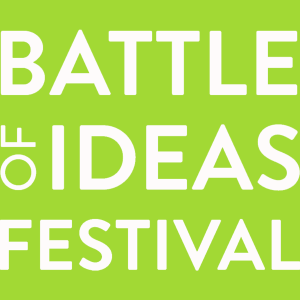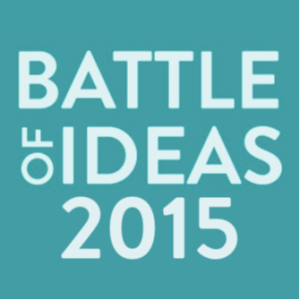
- Podcast Features
-
Monetization
-
Ads Marketplace
Join Ads Marketplace to earn through podcast sponsorships.
-
PodAds
Manage your ads with dynamic ad insertion capability.
-
Apple Podcasts Subscriptions Integration
Monetize with Apple Podcasts Subscriptions via Podbean.
-
Live Streaming
Earn rewards and recurring income from Fan Club membership.
-
Ads Marketplace
- Podbean App
-
Help and Support
-
Help Center
Get the answers and support you need.
-
Podbean Academy
Resources and guides to launch, grow, and monetize podcast.
-
Podbean Blog
Stay updated with the latest podcasting tips and trends.
-
What’s New
Check out our newest and recently released features!
-
Podcasting Smarter
Podcast interviews, best practices, and helpful tips.
-
Help Center
-
Popular Topics
-
How to Start a Podcast
The step-by-step guide to start your own podcast.
-
How to Start a Live Podcast
Create the best live podcast and engage your audience.
-
How to Monetize a Podcast
Tips on making the decision to monetize your podcast.
-
How to Promote Your Podcast
The best ways to get more eyes and ears on your podcast.
-
Podcast Advertising 101
Everything you need to know about podcast advertising.
-
Mobile Podcast Recording Guide
The ultimate guide to recording a podcast on your phone.
-
How to Use Group Recording
Steps to set up and use group recording in the Podbean app.
-
How to Start a Podcast
-
Podcasting
- Podcast Features
-
Monetization
-
Ads Marketplace
Join Ads Marketplace to earn through podcast sponsorships.
-
PodAds
Manage your ads with dynamic ad insertion capability.
-
Apple Podcasts Subscriptions Integration
Monetize with Apple Podcasts Subscriptions via Podbean.
-
Live Streaming
Earn rewards and recurring income from Fan Club membership.
-
Ads Marketplace
- Podbean App
- Advertisers
- Enterprise
- Pricing
-
Resources
-
Help and Support
-
Help Center
Get the answers and support you need.
-
Podbean Academy
Resources and guides to launch, grow, and monetize podcast.
-
Podbean Blog
Stay updated with the latest podcasting tips and trends.
-
What’s New
Check out our newest and recently released features!
-
Podcasting Smarter
Podcast interviews, best practices, and helpful tips.
-
Help Center
-
Popular Topics
-
How to Start a Podcast
The step-by-step guide to start your own podcast.
-
How to Start a Live Podcast
Create the best live podcast and engage your audience.
-
How to Monetize a Podcast
Tips on making the decision to monetize your podcast.
-
How to Promote Your Podcast
The best ways to get more eyes and ears on your podcast.
-
Podcast Advertising 101
Everything you need to know about podcast advertising.
-
Mobile Podcast Recording Guide
The ultimate guide to recording a podcast on your phone.
-
How to Use Group Recording
Steps to set up and use group recording in the Podbean app.
-
How to Start a Podcast
-
Help and Support
- Discover

Battle of Ideas Festival Audio Archive
Society & Culture

Recorded at the Battle of Ideas festival 2015 on Saturday 17 October at Barbican, London.
ORIGINAL INTRODUCTION
Liberalism emerged as the first ideology of modernity, forged during the Enlightenment in opposition to the hierarchy and reaction of the established order. More than two and a half centuries later, arguably liberalism itself is the established order, with many of the core values associated with liberalism now institutionalised throughout the Western world. Ideals such as tolerance, freedom of speech, liberty, individual autonomy, free elections, the rule of law, freedom of contract and the market have become accepted at least in principle across the political spectrum. This apparent triumph of the values of liberalism stands in sharp contrast with the disintegration of the other ideologies that emerged subsequently, especially in the nineteenth and twentieth century, from nationalism to various forms of socialism. After the collapse of the Soviet Union, liberalism appeared as the last ideology left standing. Francis Fukuyama famously heralded the triumph of liberal democracy as synonymous with the End of History.
Nevertheless, liberalism today appears more than a little disoriented and confused. In Europe, self-avowed ‘liberal’ parties are in disarray and may even face extinction. In the United States, many individuals who identify themselves as liberals self-consciously distance themselves from the classical liberal traditions of the Enlightenment. They often prefer to define their liberalism in opposition to conservative values, even at the cost of abandoning the toleration that was once the hallmark of liberalism.
Classical liberalism has very few friends on either side of the Atlantic. One symptom of this is society’s estrangement from the idea of liberty, which is often perceived as the hobby-horse of backward-looking right-wingers. The ideal of free speech is frequently trumped by the claim that it must be regulated in order to protect the powerless. Individual autonomy is invariably labelled as a myth. Even the liberal principle of tolerance has been criticised for being too judgmental and insufficiently accepting of those who are ‘merely’ tolerated.
Since there is little agreement on what liberalism means today, it is worth asking whether the legacy of liberalism is at all relevant to the public life of the twenty-first century? If it is, which components of this legacy are worth retaining, and why?
SPEAKERS
Andrew Adonis
Labour peer; author, 5 Days in May: The Coalition and Beyond
Steven Erlanger
London bureau chief, New York Times
Dr Katrina Forrester
lecturer in history of political thought, Queen Mary University of London
Professor Frank Furedi
sociologist and social commentator; author, What's Happened to the University?, Power of Reading: from Socrates to Twitter, On Tolerance and Authority: a sociological history
CHAIR
Claire Fox
director, Academy of Ideas; panellist, BBC Radio 4's Moral Maze; author, I Find That Offensive
More Episodes
 2025-04-03
2025-04-03
 5
5
 2025-04-03
2025-04-03
 3
3
 2025-04-03
2025-04-03
 3
3
 2025-04-03
2025-04-03
 6
6
 2025-04-03
2025-04-03
 1
1
 2025-04-02
2025-04-02
 7
7
 2025-04-02
2025-04-02
 7
7
 2025-04-02
2025-04-02
 11
11
 2025-04-02
2025-04-02
 4
4
 2025-04-02
2025-04-02
 3
3
 2025-04-02
2025-04-02
 6
6
 2025-04-02
2025-04-02
 5
5
 2025-04-02
2025-04-02
 10
10
 2025-04-02
2025-04-02
 11
11
 2025-04-02
2025-04-02
 12
12
Create your
podcast in
minutes
- Full-featured podcast site
- Unlimited storage and bandwidth
- Comprehensive podcast stats
- Distribute to Apple Podcasts, Spotify, and more
- Make money with your podcast
It is Free
- Privacy Policy
- Cookie Policy
- Terms of Use
- Consent Preferences
- Copyright © 2015-2025 Podbean.com



